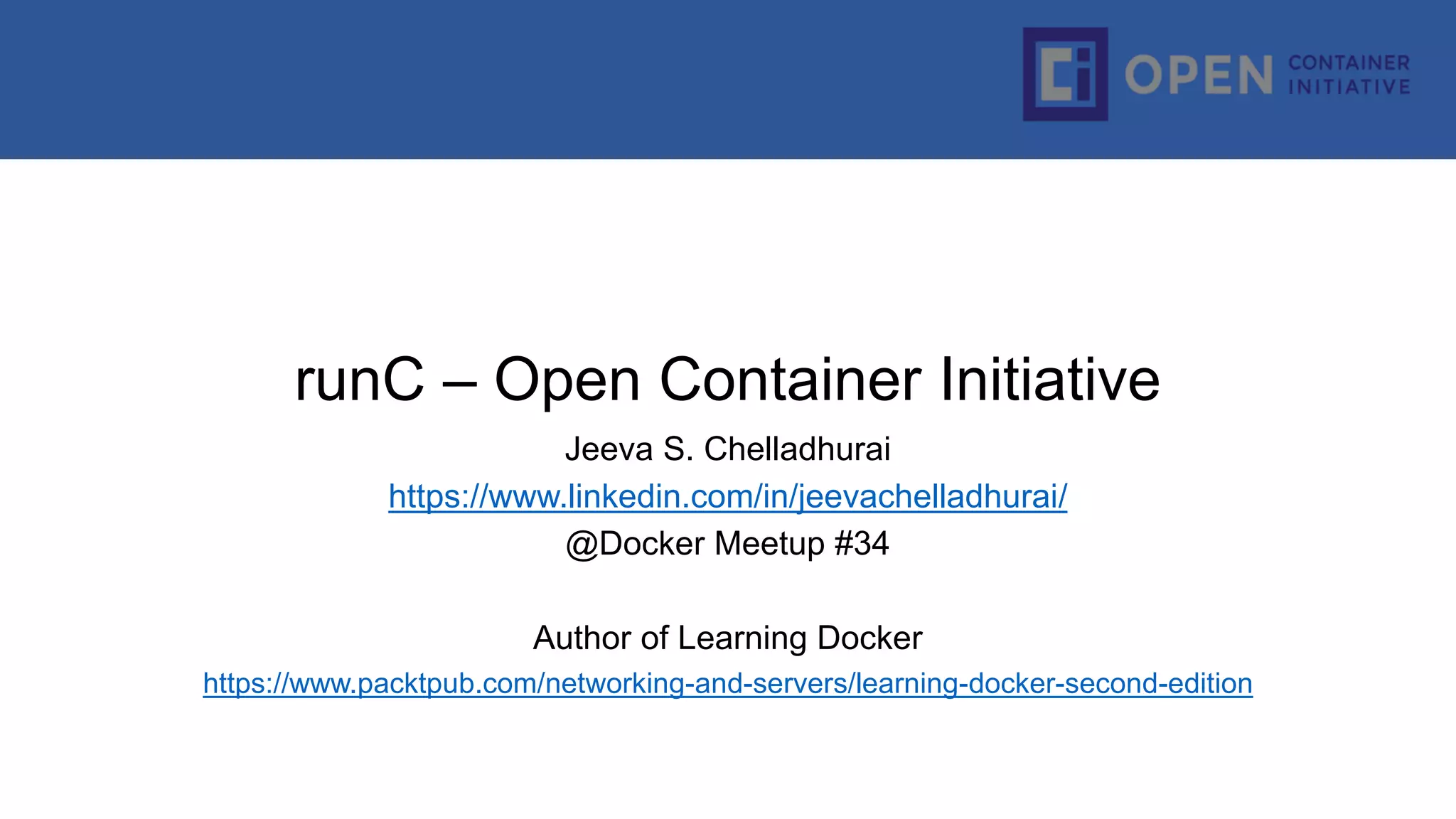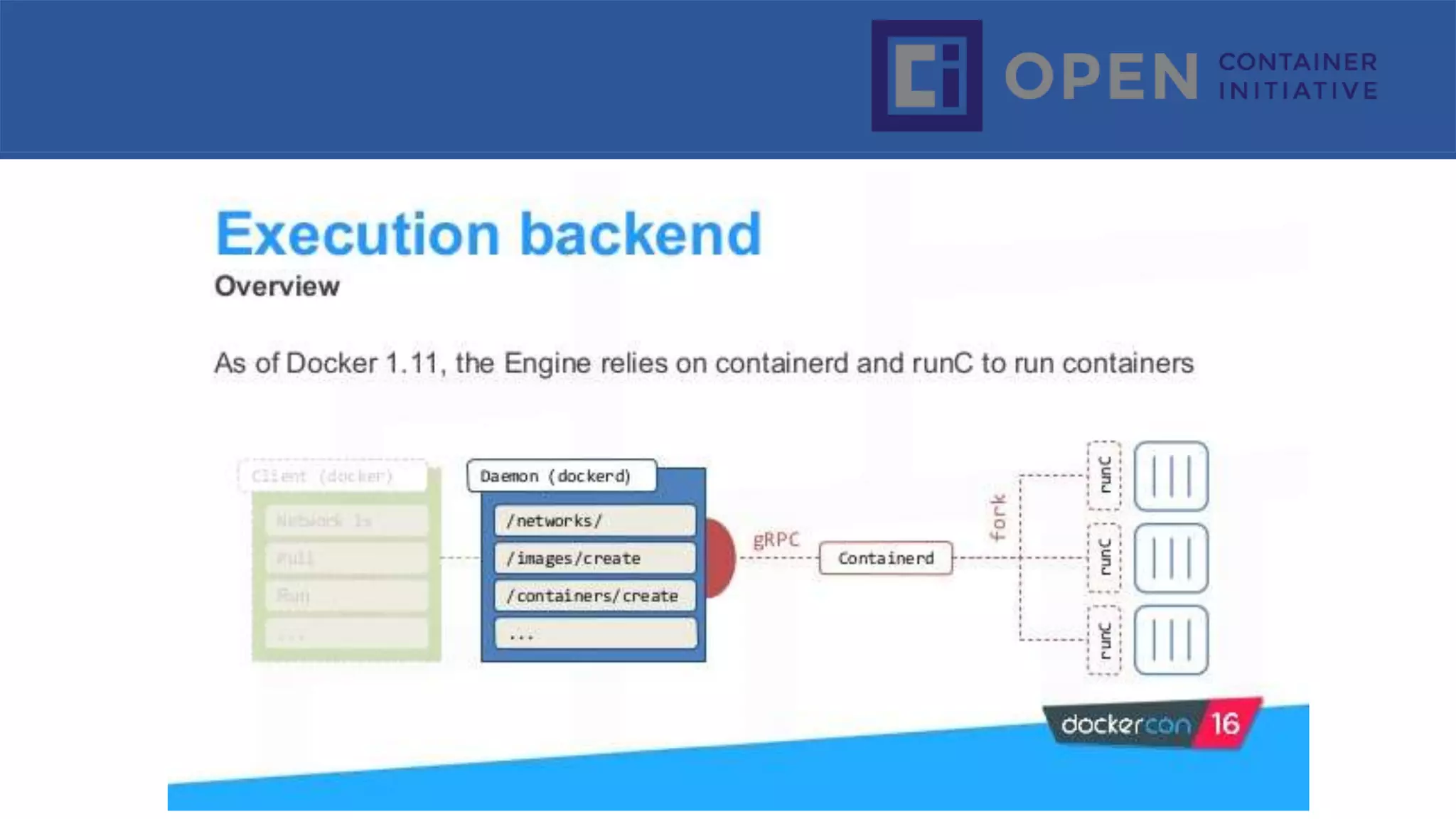This document discusses runC, the reference implementation of the Open Container Initiative (OCI) runtime specification. It provides an overview of OCI and runC, including how runC uses an OCI configuration file and filesystem bundle to launch and run containers. It also demonstrates how to install, build, and run runC containers on Linux, including creating OCI bundles from Docker containers and using features like rootless containers, mounting host directories, and hooks.




![OCI Scope [1/4]
• Runtime executable reference
• OCI Base Layer
• RunC - reference implementation
• https://github.com/opencontainers/runc
• Runtime Spec
• OCI Base Layer
• https://github.com/opencontainers/runtime-spec
• Defines the parameters needed to run the container](https://image.slidesharecdn.com/ocirunc-170826094112/75/runC-Open-Container-Initiative-5-2048.jpg)
![OCI Scope [2/4]
• Bundle Format
• OCI Base Layer
• https://github.com/opencontainers/image-spec
• Defines the filesystem layout
• Standardization needed for various runtimes
• Hashing for Content Integrity
• OCI Base Layer
• https://github.com/opencontainers/go-digest
• Ensure content integrity](https://image.slidesharecdn.com/ocirunc-170826094112/75/runC-Open-Container-Initiative-6-2048.jpg)
![OCI Scope [3/4]
• Content Addressable name
• OCI Base Layer
• Using hash as address for immutable containers
• Early stage of discussion
• Archival Format
• OCI Base Layer
• Serialization of filesystem bundle
• Yet to start](https://image.slidesharecdn.com/ocirunc-170826094112/75/runC-Open-Container-Initiative-7-2048.jpg)
![OCI Scope [4/4]
• Compliance Test Suite
• OCI Base Layer
• Test cases and tools to ensure the implementations comply with the
specs
• OCI Optional Layers
• Signature
• DNS based naming](https://image.slidesharecdn.com/ocirunc-170826094112/75/runC-Open-Container-Initiative-8-2048.jpg)

















